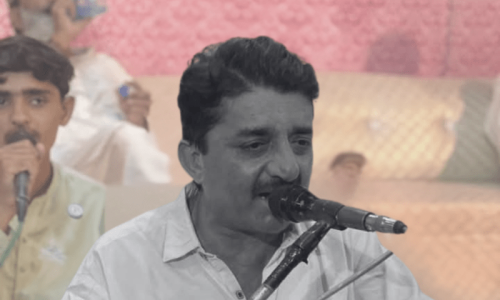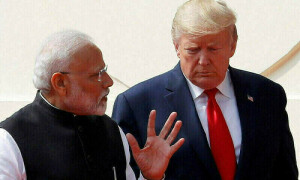PARIS: The West wants to dig into Moscow’s pockets to provide aid to Ukraine, but tapping frozen Russian assets is not that simple.
The complex issue is on the agenda at this week’s meeting of finance ministers of the Group of Seven wealthy democracies.
The United States initially supported seizing the frozen Russian assets outright, but it now backs the European proposal to grab the interest that they generate.
While US Treasury Secretary Janet Yellen welcomed the plan at the G7 meeting in Stresa, Italy, she said on Thursday that allies should continue their “collective work on more ambitious options”.
Using the billions of dollars sitting in Western accounts faces several obstacles that have been the subject of debate by legal and geopolitical experts. The European Union and G7 nations have frozen some 300 billion euros ($325bn) of Russian central bank funds.
Assets such as the villas and yachts of some Kremlin-linked oligarchs have also been seized.
Tempting idea
While there is no comprehensive tally, the Ukrainian think tank Institute of Legislative Ideas, which says it has consulted official sources, puts the total at $397bn.
“It is a tempting idea to seize the windfall,” said Frederic Dopagne, an international law professor at the University of Louvain.
The World Bank estimates that it will cost more than $486bn to rebuild the country, devastated by two years of war.
A large chunk of the funds — 185m euros’ worth — has been frozen by Euroclear, an international deposit organisation based in Belgium, French Economy Minister Bruno Le Maire said on Wednesday.
That gives Europe an important role in deciding whether and how to use the blocked assets.
The remainder is held by the United States, Japan, Britain, Austria and Switzerland, according to the Institute of Legislative Ideas.
What’s the holdup?
Assets held by central banks are protected by “immunity from execution”, a legal principle that prevents one state from seizing another’s assets. Additionally, the right to private property theoretically obstructs the permanent confiscation of assets held by individuals.
Reluctance to seize the assets stems from the fact that the reallocation of blocked funds to a victim state “has never been used”, Dopagne said.
Some legal experts, however, say such a move would be justified as a “proportional response” to the impact of Russia’s invasion of Ukraine on the global economy.
A close example was the $52.4bn in reparations that Iraq paid to Kuwait after 1990, but those payments were overseen by a UN body created specifically for the case.
A more recent case was the freezing of Afghan central bank assets by the United States after the Taliban returned to power, but the move aimed to distribute the funds to the country’s population, not to another nation.
Nicolas Veron, a senior fellow at the Washington-based Peterson Institute for International Economics, warned that seizing Russian assets could set a dangerous legal precedent. “If we were at war, everything would be different. But we are not at war with Russia,” Veron said.
Some caution that other countries, such as China, could withdraw assets from Western nations over concerns that they could also be seized in a conflict.
Published in Dawn, May 25th, 2024















































Dear visitor, the comments section is undergoing an overhaul and will return soon.